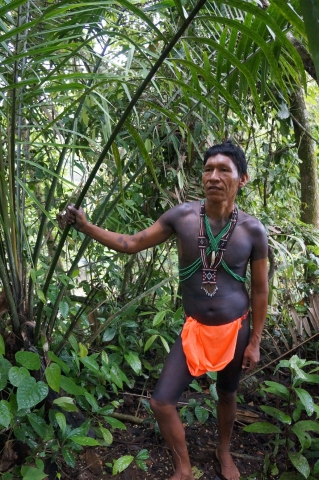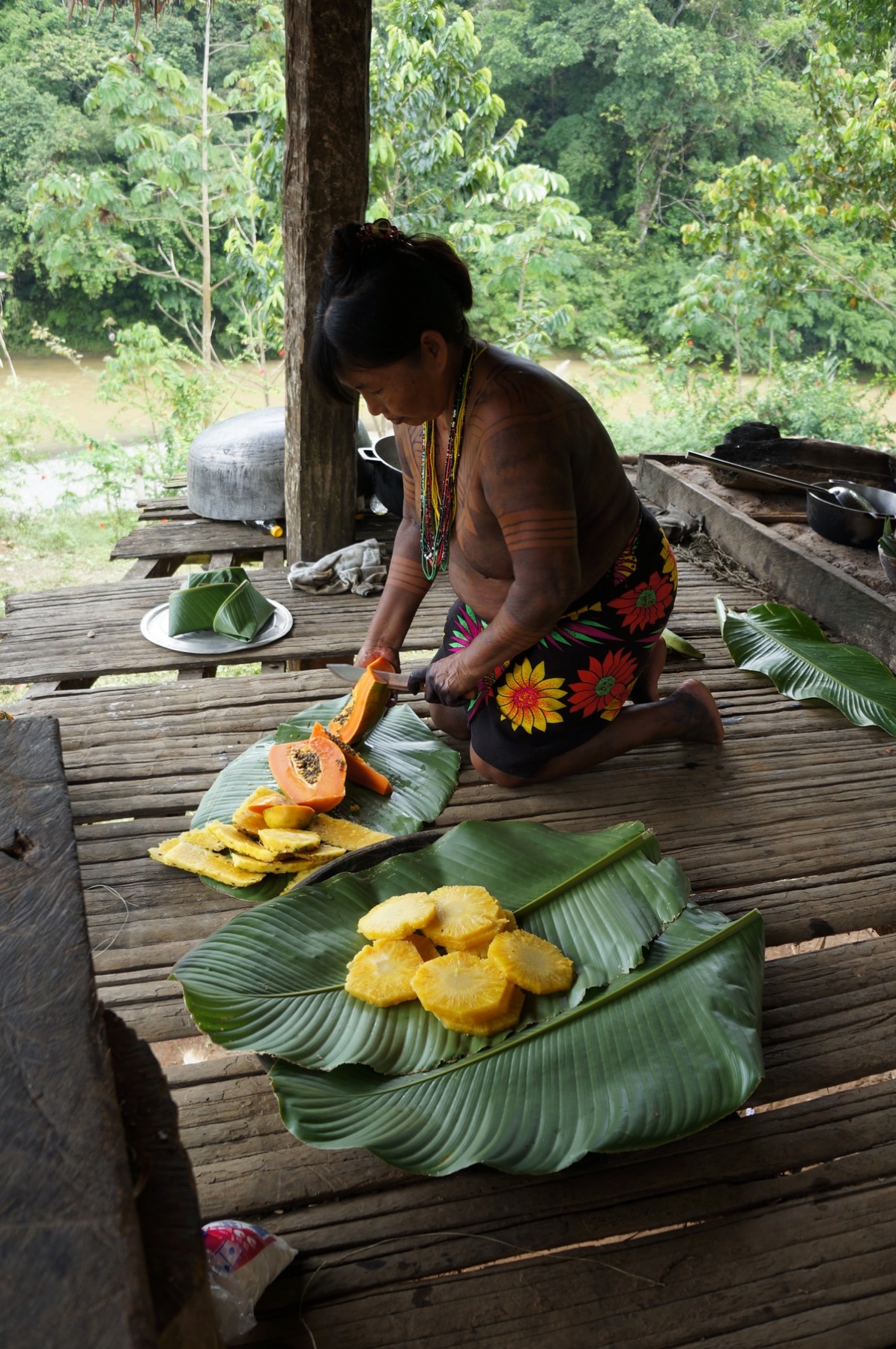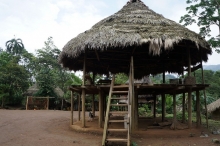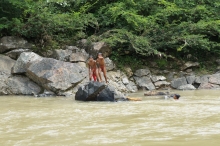
Are you rich? While your immediate answer may be based on how you compare to your neighbours, your aspirations, or how stressed you are at the end of the month, it's actually a much more complicated question. Take a moment to get in touch with what you identify as true riches, the kind that will matter at the end of your life, and ask yourself again - how rich are you?
I love David Suzuki, and tonight I'm listening to an interview with him on CBC's Ideas. He shared memories of his father saying, numerous times at in the last weeks of his life, "David, I'm rich." David was confused. His family wasn't rich. But as they reminisced about the fishing trips they'd taken, the walks in the forest, the deep friendships, and strong family ties, the light dawned on young David. His father was instilling in him an appreciation of the intangible riches that he had accrued by bucking his immigrant family's values by spending Saturdays with his son, instead of working.
 Last month I spent a weekend with an indigenous tribe in the Panamanian jungle. They wore loin cloths, plucked lunch from village trees and the river, served it in palm leaves, then composted the plates. After lunch, walking by the river, I met a couple building a thatch hut from fallen trees, natural rope, and leaves. In fact, I slept in one that night. Although it rained a dozen times that day, I was perfectly dry and comfortable under the leaf roof, through which sunlight danced. While the lack of walls was a big privacy adjustment, in the humid jungle the air flow was essential. It was magical to be able to see fireflies come out at dusk, hear the noise level rise as the insects and frogs started singing, and to watch the lightning show all night. Candles and voices carried over from the nearby huts; it was as different from concrete urban isolation that I've ever experienced.
Last month I spent a weekend with an indigenous tribe in the Panamanian jungle. They wore loin cloths, plucked lunch from village trees and the river, served it in palm leaves, then composted the plates. After lunch, walking by the river, I met a couple building a thatch hut from fallen trees, natural rope, and leaves. In fact, I slept in one that night. Although it rained a dozen times that day, I was perfectly dry and comfortable under the leaf roof, through which sunlight danced. While the lack of walls was a big privacy adjustment, in the humid jungle the air flow was essential. It was magical to be able to see fireflies come out at dusk, hear the noise level rise as the insects and frogs started singing, and to watch the lightning show all night. Candles and voices carried over from the nearby huts; it was as different from concrete urban isolation that I've ever experienced.
Returning to Panama city, it seemed like the Embera people had no amenities of life, no electricity, cell phones (or signal), stores, or possessions. But their needs are met by the forest, and they had all they need. Their traditional botanist even opened my eyes to how well-stocked a pharmacy the jungle is, when you know its secrets. Yes, the Embera people were far richer than me, with my iphone, car, and paycheque, but urban isolation, pollution, stress. If a catastrophe hits, we're 3 days from death if our water filtration system fail, and weeks from death if food isn't trucked in, but the Embera would hardly notice a difference if the global economy totally collapsed. They'd just have to paddle downstream, instead of use an outboard on their dugout canoes. It was remarkable to me that everyone I asked recognised their wealth. Not even the 18-year-old wife, nursing her baby, would trade her life for a mall, skinny jeans, or city life.
I was reminded of the Embera village when David shared another story in the interview. He was invited to an indigenous village on Kitimak Island, Canada, to discuss whether they'd profit by allowing logging on their land. Feasting on a huge banquet of clams, crab, salmon and seaweed in the long house, one tribe member explained that they needed to allow logging because they were poor. David said he couldn't decide for them, but could share that he couldn't afford to put that spread on from his grocery store, only knew 10 of his neighbours after living in the same house for 25 years, wouldn't let his kids play outside after dark, and had robbers invade his home and car recently. Who's rich? Who's poor?Watch testimonies of Embera Peru village members on CryPeace's Youtube channel
Photos © Carole St. Laurent 2014:
- The village botanist giving me a tour of nature's pharmacy
- Guest hut where I stayed
- Village woman preparing a feast of local fruit, fish and plantain
- Boys swimming in the river, the main access point to the village
- Log in to post comments


